Mars’ blockbuster deal is a huge bet that the shift towards snacking is here to stay – even across HFSS food. Will it inspire more M&A in fmcg?
Mars’ $36bn acquisition of Kellanova is a massive vote of confidence for fmcg. It’s the biggest deal in the sector since the $40bn Kraft Heinz merger in 2015, and experts think it could be a signal that food and drink M&A is finally out of the doldrums, especially given it follows hot on the heels of Newlat’s £700m takeover of Princes and Carlsberg’s £3.3bn tilt at Britvic.
But the move seems to fly in the face of consumer trends towards healthier options and worries over foods that are ultra-processed and high in fat, salt and sugar (HFSS).
So, why has Mars doubled down on HFSS food? Will it hit competition hurdles? And could it be the trigger for more food and drink mega-deals?
Mars isn’t the first global giant to double down on perceived unhealthy foods, with the $5.6bn acquisition of Twinkies owner Hostess Brands by JM Smucker late last year uniting two major US snack makers. But it’s a different approach to that of Mondelez, which has previously bought the likes of Clif Bar in a $2.9bn deal, Grenade and other healthier alternatives.
Ultimately, the reasoning behind the combination with Kellanova boils down to scale, not health.
Mars generates annual revenues of $50bn, with petcare making up about $20bn of the total. As Jeff Robards, Alantra sector lead for consumer foods in North America points out, there aren’t lots of opportunities for it to buy something big enough to move the needle. “For them to get a presence in any categories complementary to their own, you need scale,” he says. “Kellanova has scale. The categories – confectionery, candy and snacking – are very complementary, but there are also some product differences in terms of the section of the store.”
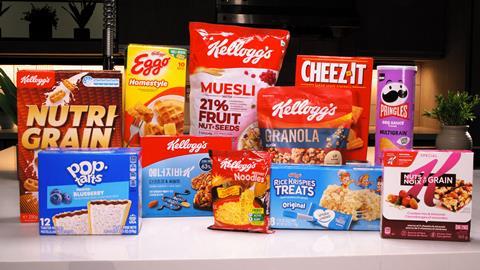
Another banking source wonders if there is a desire on the part of the Mars family to simply “do something really big”.
Still, eyebrows have been raised at the huge price tag – a 44% premium on Kellanova’s average recent share price and a 16.4x adjusted EBITDA multiple. Damian Thornton of Piper Sandler argues the price was “full but not outrageous”. “These types of brands don’t come along every day and this sort of scale in one bite doesn’t come along often at all,” he says.
Shaun Browne of Houlihan Lokey adds that the private, family ownership structure of Mars means that, like rival confectionery giant Ferrero, it can take a long-term view. “If they want to do a deal, they can,” he says. “There is no shareholder gauntlet to run. They paid the price they needed to pay to buy the business and also forestall any other interlopers.”
And Kellanova is performing well since Kellogg’s split itself into two separate companies, with WK Kellogg Co taking the under-performing breakfast portfolio in North America (international cereal remains with Kellanova). It lifted full-year sales forecasts after a strong set of results in the second quarter, with Pringles leading the way for a double-digit profit rise.
Scale also brings more negotiating power with retailers and potential synergies on packaging, raw materials, marketing expenses and sales teams, Robards adds, with cost savings potentially funnelled into bringing prices down for under-pressure consumers.
The deal may also be a diversification play to reduce exposure to the cocoa market, where commodity prices are soaring. “It seems to be a rather difficult-to-fix trend right now and could be indicative of a longer-term direction of travel,” says Robards.
And it takes Mars into new geographic markets, including Africa and Latin America, where Kellanova has a strong presence.
Food & drink mega-deals since 2000
- AB InBev buys SAB Miller, 2015, $104bn: At the time it was the biggest-ever takeover of a British company as AB InBev snapped up SAB Miller to create a global brewing powerhouse
- Kraft merges with Heinz, 2015, $40bn: Brazilian PE player 3G teamed up with investor legend Warren Buffett to merge Kraft with Heinz in the most recent blockbuster deal of the past decade
- Unilever buys Bestfoods, 2000, $24bn: Unilever won a prolonged takeover battle to create the world’s second-largest packaged foods company, adding Hellmann’s, Knorr and Skippy peanut butter to the group
- Mars buys Wrigley, 2008, $23bn: Mars teamed up with Sage of Omaha Warren Buffett for a deal that saw it overtake Cadbury Schweppes as the biggest sweets and chocolate maker in the world
- JAB Holdings acquires Dr Pepper Snapple, 2018, $19bn: Investment vehicle JAB bought Dr Pepper Snapple to combine it with the Keurig Green Mountain coffee business in the largest soft drink deal up to that point
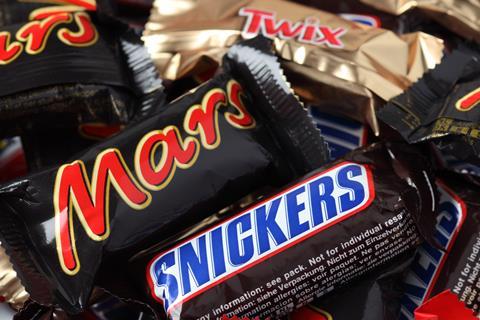
Health concerns
While consumer health might not be central for Mars, it is certainly still high on the agenda for governments, campaigners and regulators.
Bite Back, a youth-led charity founded in 2019 by chef Jamie Oliver, lays a big helping of blame at Mars’ door for its contribution to unhealthy food sales in the UK. Research conducted by the campaign group, in partnership with the University of Oxford, found Mars sold around £1.4bn worth of HFSS products in 2022, driven primarily by confectionery sales.
“This acquisition of Kellanova looks set to exacerbate the problem,” says CEO James Toop. “Instead of prioritising the expansion of their healthier brand portfolio, Mars is doubling down on typically unhealthy snacking options. At a time when children’s health is under unprecedented threat from junk food, this deal signals a significant step in the wrong direction for public health.”
In fairness, Kellanova does bring a number of healthier options, including RX Bar, Nutri-Grain, Pure Organic fruit bars and the Morningstar Farms plant-based food range. Mars itself has already acquired healthier snacking brands Kind and Nature’s Bakery, offering fig bars and other soft-baked products and, most recently, Kevin’s Natural Foods, which makes sous vide meals, sides and sauces using “whole foods and simple ingredients”, and was picked up for a reported $800m.
Read more:
-
Mars agrees blockbuster $36bn takeover of Kellanova to create snacking behemoth
-
Mars’ $30bn move for Kellanova could kick off consolidation wave
-
Will Mars-Kellanova deal signal a UPF black hole?
Andrew Clarke, who will take charge of Kellanova as the global president of Mars Snacking, hinted at potential reformulation to address health concerns. He says the two complementary portfolios, routes-to-market and R&D capabilities will “unleash enhanced consumer-centric innovation to shape the future of responsible snacking”. It’s open to interpretation whether that means innovation for a Mars bar cereal and Snickers Pop-Tarts or something more meaningful.
Either way, the deal is a big bet that the urge to snack is going nowhere. Indeed Mars recently stated an ambition to double sales in the snacking category to $36bn over the next decade.
Revenues of $13bn at Kellanova take Mars to within touching distance of its goal at a stroke, adding two billion-dollar brands (Pringles and Cheez-It) as well as Pop-Tarts, Eggo and the Kellogg’s cereal brands outside of North America to its portfolio of Snickers, Twix, M&Ms, Wrigley’s Extra and Dove (known as Galaxy in Europe).
Thornton believes the shift to snacking is “irreversible” as consumers, particularly in cities and younger demographics, take more food on the go.
Mars notes the majority of Kellanova snacking brands outperform category competitors, particularly among Gen Z and millennial consumers.
“Snacking remains a fundamentally attractive area for food businesses, with long-term fragmentation of eating habits fuelling growth and strong brands sustaining healthy margins,” says OC&C partner Will Hayllar.
“Having a strong route to market is vital in snacking given the importance of convenience and out-of-home channels in these categories. Mars’ acquisition will give it more savoury products to complement its sweet snacking portfolio and enable it to use the combined route-to-market strength to drive further growth in these brands.”
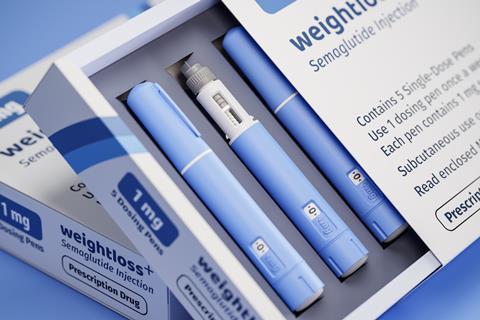
The Ozempic question
However, the great unknown of the impact of weight loss drugs such as Ozempic and Wegovy hangs over all snack makers, and may yet throw a spanner in Mars’ grand plan.
A 2024 Morgan Stanley report estimates 9% of the US population will be taking the drugs by 2035, and that it could lead to a fall of as much as 4% in consumption of soft drinks, alcohol and salty snacks.
Robards, Browne and Thornton think the role of these drugs has been overplayed by the media.
“I wonder if there’s going to be a backlash as side effects and other impacts are better understood, because these drugs were not originally intended to be used for weight loss,” Thornton says. “That is a happy accident.”
The other hurdle for Mars is the reaction of competition regulators to the deal. Most commentators expect the transaction to be passed given the limited overlap in categories and geographic presence.
Even so, Robards says antitrust authorities will take “a hard look” at the combination to ensure it isn’t going to be a driver for further inflation or reduced competition.
“If you have a lot of money, you can afford to spend more on slotting fees and pay for more shelf space,” he adds. “And that makes it difficult for smaller and marginal brands to compete for that same space.”
He also highlights a tougher approach by the antitrust regime to big mergers under the Biden administration, with the expectation that Kamala Harris, if elected in November, would continue on the same path.
“The level of scrutiny will definitely be higher than it might have been with past antitrust regimes,” Robards says.
Read more on health:
-
Can food brands survive the rise of Ozempic?
-
M&S in tricky talks with suppliers over UPF ingredients in Eat Well range
-
A third of fast food meals ‘contain double recommended calories’
Competition hurdles aside, it is expected a deal of this size will open the floodgates for wider food and drink M&A.
Browne says confidence from Mars to dish out $36bn could lead fmcg players to dust down their files and look at what assets are available in the market.
“It’s been more of a buyers’ market in food & drink over the past couple of years,” he says. “But my sense is the pendulum may swing the other way as demand comes back for a sector that has been a little unloved while cost inflation has been a big issue.”
Robards wonders whether the move by Mars puts pressure on rival Hershey to do a big deal.
“Hershey has a very low leverage ratio and is trading at a very high multiple,” he adds. “Is there someone out there that Hershey feels compelled to acquire?”


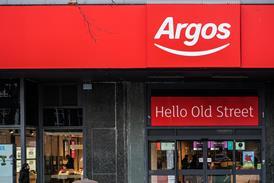




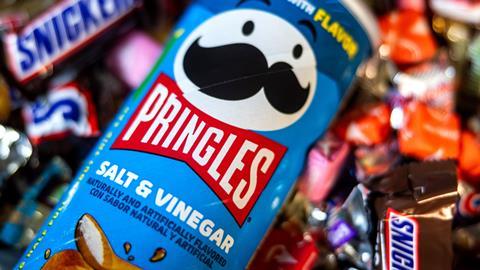



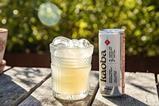
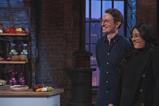

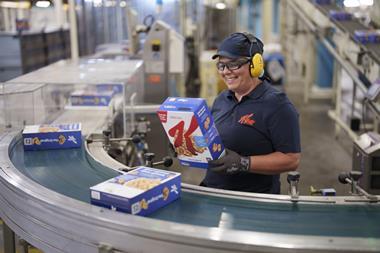
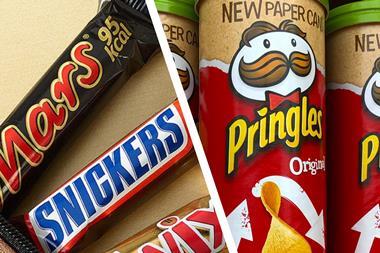
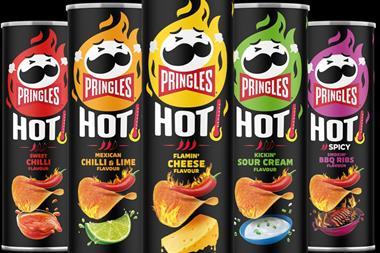

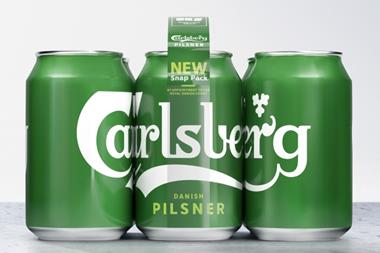






No comments yet